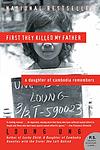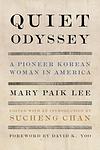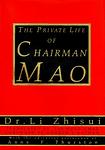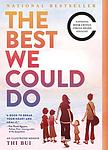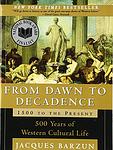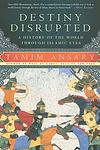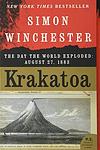The Greatest "Nonfiction, Asian History" Books Since 1990
Click to learn how this list is calculated.
This list represents a comprehensive and trusted collection of the greatest books. Developed through a specialized algorithm, it brings together 286 'best of' book lists to form a definitive guide to the world's most acclaimed books. For those interested in how these books are chosen, additional details can be found on the rankings page.
Genres
Asian History is a category of books that focuses on the historical events, cultures, and societies of Asia. This category includes books that cover a wide range of topics, including the ancient civilizations of China, Japan, and India, the rise and fall of empires, the impact of colonialism, and the modernization of Asian countries. It also includes books that explore the social, political, and economic changes that have shaped the region over time. Overall, Asian History provides readers with a comprehensive understanding of the rich and diverse history of Asia.
Countries
Date Range
Reading Statistics
Click the button below to see how many of these books you've read!
Download
If you're interested in downloading this list as a CSV file for use in a spreadsheet application, you can easily do so by clicking the button below. Please note that to ensure a manageable file size and faster download, the CSV will include details for only the first 500 books.
Download-
1. Wild Swans: Three Daughters of China by Jung Chang
This book is a biographical account of three generations of women in China, spanning the years 1909 to 1991. The narrative follows the lives of the author's grandmother, a warlord's concubine; her mother, a high-ranking official in the Communist Party; and the author herself, who grew up during the Cultural Revolution before moving to the West. The book presents a vivid portrayal of the political and social changes in China during the 20th century, as seen through the eyes of these three women.
-
2. Sapiens: A Brief History of Humankind by Yuval Noah Harari
This book provides a comprehensive exploration of the history of the human species, tracing back from the earliest forms of Homo Sapiens to the modern day. It delves into evolutionary biology, the development of cultures and societies, and the rise of major ideologies and technologies. The book also discusses the future of the species, posing thought-provoking questions about our roles and responsibilities in a rapidly changing world.
-
3. The Bookseller of Kabul by Asne Seierstad
This book provides an intimate and eye-opening look into the everyday life of an Afghan family. The narrative follows a bookseller in Kabul, who despite the oppressive Taliban regime, courageously continues his trade. The story delves into his family dynamics, the struggles of his two wives, his children's lives, and the societal norms and customs they navigate. It paints a vivid picture of life in Afghanistan, exploring the themes of love, courage, resilience, and the power of literature.
-
4. Falling Leaves by Adeline Yen Mah
"Falling Leaves" is a heartbreaking autobiography that recounts the life of a young girl who grows up in a wealthy but abusive family in 20th century China. Despite being the daughter of a prosperous businessman, she is treated as an outcast and blamed for her mother's death, who died shortly after her birth. The story portrays her struggle for acceptance and love within her family, her journey through the cultural revolution in China, and her eventual success as a physician in the U.S. It's a poignant exploration of the themes of familial bonds, resilience, and the human spirit's ability to overcome adversity.
-
5. First They Killed My Father: A Daughter of Cambodia Remembers by Loung Ung
This memoir recounts the author's experiences as a young girl in Cambodia during the Khmer Rouge regime. She is forced from her home in Phnom Penh to a labor camp in the countryside along with her family, where they face starvation, disease, and brutality. The book details her survival through the genocide, her eventual escape to Thailand, and finally her immigration to the United States. It is a powerful story of resilience, courage, and the human spirit's ability to overcome overwhelming adversity.
-
6. May You Be The Mother Of A Hundred Sons by Elisabeth Bumiller
This book offers a poignant exploration of the lives of women in India, delving into the complexities of their roles in a society marked by stark contrasts and contradictions. Through a series of vivid narratives and personal stories, the author paints a multifaceted picture of the challenges and triumphs faced by Indian women, from the constraints imposed by traditional customs to their efforts in seeking empowerment and equality. The work reflects on themes of marriage, motherhood, and the cultural significance of bearing sons, while also examining the evolving landscape of women's rights and the impact of economic and social change in India.
-
7. Quiet Odyssey by Mary Paik Lee
This book is a poignant memoir that chronicles the life of a Korean immigrant family in early 20th-century America. Through the lens of a young girl, the narrative unfolds the hardships, discrimination, and poverty they faced while maintaining their dignity and striving for a better life. The family's journey from a tumultuous homeland to an uncertain future in the United States is marked by resilience and perseverance, as they navigate cultural barriers and the constant struggle to assimilate while preserving their identity. This personal account provides a unique perspective on the broader Asian American experience during a time of significant social and political change.
-
8. The Road Through Miyama by Leila Philip
The book is a memoir that recounts the author's experience living in the rural Japanese village of Miyama, where she apprenticed with a traditional potter. Immersing herself in the rhythms of rural life and the demanding discipline of pottery, she navigates cultural barriers and finds a deep connection to the landscape and its people. Through her journey, the author explores themes of tradition, craftsmanship, and the intricate relationship between human endeavor and the natural world, all while painting a vivid portrait of a community holding onto its heritage amidst modernity.
-
9. Behind the Beautiful Forevers: Life, Death, and Hope in a Mumbai Undercity by Katherine Boo
This book is a gripping narrative that provides an in-depth look into the lives of residents in a Mumbai slum, focusing on their struggles and aspirations. The author paints a vivid picture of the harsh realities of poverty, corruption, and inequality, while also highlighting the resilience and hope of the inhabitants. The narrative is a powerful exploration of the complexities of modern India, revealing the stark contrast between the country's booming economy and the grim living conditions of its underprivileged citizens.
-
10. Daughter Of Persia: A Woman's Journey From Her Father's Harem Through The Islamic Revolution by Sattareh Farman-Farmaian
This memoir recounts the extraordinary life of a woman born into a privileged family in early 20th-century Iran, who witnessed the dramatic shifts of her country's social and political landscape. Growing up in a polygamous household, she broke with tradition to pursue an education abroad, later returning to Iran to become a pioneering advocate for social reform and women's rights. Her story spans the rise and fall of the Pahlavi dynasty, the advent of the Islamic Revolution, and her subsequent exile, offering a personal lens on Iran's complex history and the role of women within it. Through her journey, she embodies the struggles and resilience of a nation in the face of modernity and change.
-
11. Burmese Looking Glass by Edith Mirante
The book is a gripping memoir that chronicles the author's daring travels and activism in Burma (Myanmar) during the 1980s. It delves into the complex political landscape of the country, highlighting the struggles of ethnic minorities and the brutality of the military regime. The author's journey is both a personal quest and a political mission, as she ventures into rebel-held territories, witnesses human rights abuses, and works to bring international attention to the plight of the Burmese people. Her narrative weaves together adventure, compassion, and a deep commitment to justice, offering a unique perspective on a nation fraught with conflict and the resilience of its people.
-
12. The Private Life of Chairman Mao by Li Zhi-Sui
This book is a memoir written by a personal physician who served Chairman Mao for over two decades. It offers an unprecedented and intimate look into the life and character of the powerful Chinese leader. The book reveals Mao's personal habits, manipulative nature, political maneuvers, and his disregard for human life in the pursuit of his goals. It also uncovers the power struggles within the Chinese Communist Party, providing a unique perspective on China's political history.
-
13. The Best We Could Do: An Illustrated Memoir by Thi Bui
This illustrated memoir captures the story of a Vietnamese family who fled to America after the fall of South Vietnam in the 1970s. The narrative traces their journey and struggles as refugees, while also delving into the family's complex history and relationships. The author uses her own experiences as a new mother to explore themes of parenthood, identity, and the enduring effects of displacement and trauma.
-
14. China Along The Yellow River by Cao Jinqing
This book provides a detailed sociological examination of rural China through the lens of villages along the Yellow River. The author, an urban intellectual, immerses himself in the daily lives of rural residents, uncovering the profound economic struggles, social changes, and the enduring traditions that define their existence. Through vivid narrative and insightful analysis, the book explores the impact of rapid industrialization and urbanization on these communities, offering a poignant look at the disparities between China's urban and rural landscapes.
-
15. The Silent Steppe: The Story Of A Kazakh Nomad Under Stalin by Mukhamet Shayakhmetov
"The Silent Steppe: The Story Of A Kazakh Nomad Under Stalin" is a gripping memoir that chronicles the life of a Kazakh nomad during the brutal reign of Stalin. The book offers a firsthand account of the hardships, persecution, and forced collectivization experienced by the Kazakh people under Soviet rule. Through the eyes of the author, readers gain insight into the resilience, traditions, and struggles of the Kazakh nomadic culture in the face of political oppression.
-
16. From Dawn To Decadence : 1500 To The Present by Jacques Barzun
This book offers a sweeping overview of Western cultural life from the Renaissance to the early 21st century. It delves into the pivotal events, ideas, and personalities that have shaped the modern world, exploring how cultural movements and the evolution of thought have influenced society's development. The narrative weaves through various disciplines, including art, music, politics, and science, to provide a comprehensive understanding of the forces that have led to both the achievements and challenges of Western civilization. Through a rich tapestry of historical analysis, the work invites readers to reflect on the complexity and dynamism of the human experience over the last five centuries.
-
17. The Great Divergence by Kenneth Pomeranz
This book challenges traditional views on the rise of the Western world's economic dominance, arguing that until the late 18th century, parts of Europe, China, Japan, and the Islamic world were similarly advanced. The author contends that geographical and ecological factors, rather than inherent cultural or technological superiority, played a crucial role in Europe's industrialization. Specifically, the availability of coal in Britain and the exploitation of the New World's resources are highlighted as pivotal in creating the "Great Divergence" between the West and the rest of the world. Through this lens, the book reevaluates the roots of global inequality and the factors that have shaped the modern economic landscape.
-
18. The Ordeal Of Elizabeth Marsh: A Woman In World History. by Linda Colley
"The Ordeal of Elizabeth Marsh" by Linda Colley tells the story of a remarkable woman who lived in the 18th century and traveled the world, experiencing various cultures and societies. Elizabeth Marsh was born into a wealthy family in England but faced many challenges throughout her life, including being kidnapped in Morocco and facing financial ruin. Colley uses Marsh's story to explore themes of gender, power, and imperialism, and to shed light on the experiences of women in world history.
-
19. Destiny Disrupted by Tamim Ansary
The book provides a sweeping historical account of the world from the perspective of Islamic civilization. It spans from the time of the Prophet Muhammad to the early 21st century, offering insights into how Muslims have seen their history unfold, which is markedly different from the Western narrative. The author delves into the rise and fall of empires, the evolution of Islamic thought, and the complex interactions between the Muslim world and the West. This narrative aims to bridge cultural divides by presenting a story that is often left out of typical Western-centric historical accounts, thus giving readers a more nuanced understanding of global history and the roots of contemporary geopolitical issues.
-
20. A History of the World in 100 Objects by Neil MacGregor
This book offers a unique perspective on world history, telling the story of humanity through the examination of 100 man-made objects. The author, a museum director, uses items from the British Museum, ranging from a 2 million-year-old Olduvai stone cutting tool to a contemporary credit card, to explore various themes such as trade, religion, art, science, and politics. The book provides a fascinating lens through which to view the evolution of human civilization.
-
21. Japanese Philosophy by John C. Maraldo, Thomas P. Kasulis, James W. Heisig
This book provides a comprehensive overview of Japanese philosophy, exploring its unique characteristics and its evolution through history. It delves into the diverse intellectual traditions of Japan, including both well-known philosophical schools and lesser-known but equally significant ideas. The text examines how Japanese philosophy has been influenced by and has interacted with other philosophical traditions, particularly Western philosophy, while also highlighting its distinct approach to fundamental philosophical issues such as ethics, aesthetics, and the nature of reality. Through a detailed analysis, the book offers insights into how Japanese philosophical thought has contributed to broader philosophical discourse and how it reflects the cultural and historical context of Japan.
-
22. Wrong About Japan by Peter Carey
In this travel memoir, a father and his anime-obsessed son embark on a journey to Japan in an attempt to understand the son's fascination with the country's pop culture. Their adventure leads them to meet manga artists, anime directors, and cultural commentators, through which they explore the nuances of Japanese animation and its historical contexts. As the father attempts to bridge the cultural gap and connect with his son, he confronts his own preconceptions and discovers the complexities of modern Japanese culture, which cannot be easily understood through the lens of Western perspectives. The narrative delves into themes of cultural exchange, the generational divide, and the search for authenticity in a land where the line between reality and fiction often blurs.
-
23. Along The Ganges by Ilija Trojanow
The book is a travelogue that takes the reader on a captivating journey along the sacred Ganges River, from its source in the Himalayas to its delta in the Bay of Bengal. The narrative is rich with descriptions of the diverse landscapes, cultures, and people encountered by the author. It delves into the profound spiritual significance of the river to millions of Hindus, as well as the contemporary challenges it faces due to pollution and modernization. Through personal reflections and encounters, the author explores the complex relationship between the river and the civilization it has nurtured for centuries, offering insights into the historical, religious, and ecological aspects of this iconic waterway.
-
24. Empire Of Cotton: A Global History by Sven Beckert
"Empire of Cotton" by Sven Beckert is a comprehensive global history of cotton, exploring its impact on the world economy, politics, and society from the 18th century to the present day. Beckert argues that cotton played a crucial role in the development of capitalism, colonialism, and imperialism, and that its production and trade were intimately linked to the exploitation of labor, the growth of slavery, and the rise of industrialization. The book offers a fascinating and thought-provoking perspective on the complex and often violent history of cotton and its enduring legacy in the modern world.
-
25. Krakatoa by Simon Winchester
The book provides a comprehensive account of the catastrophic eruption of the Krakatoa volcano in 1883, one of the deadliest volcanic events in recorded history. It explores the geological and historical context leading up to the eruption, detailing the scientific discoveries and cultural impacts that followed. The narrative delves into the global effects of the eruption, such as climatic changes and spectacular sunsets observed worldwide, and examines its profound influence on the local and global political landscapes. Through a blend of history, science, and vivid storytelling, the book captures the awe-inspiring power of nature and its lasting impact on human society.
Reading Statistics
Click the button below to see how many of these books you've read!
Download
If you're interested in downloading this list as a CSV file for use in a spreadsheet application, you can easily do so by clicking the button below. Please note that to ensure a manageable file size and faster download, the CSV will include details for only the first 500 books.
Download



